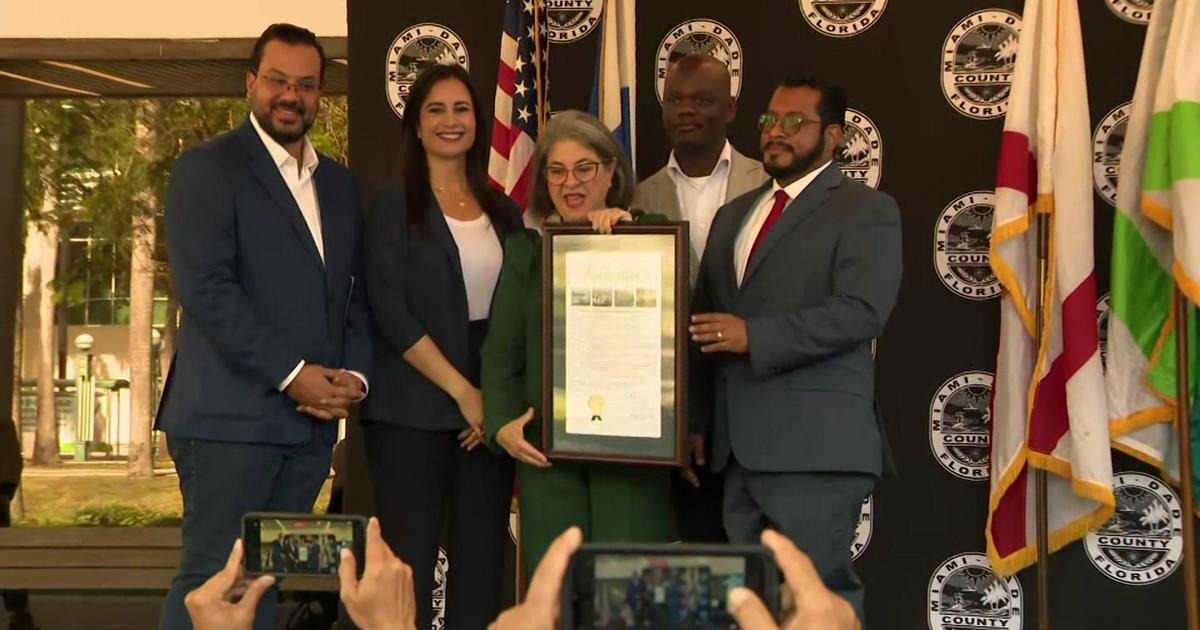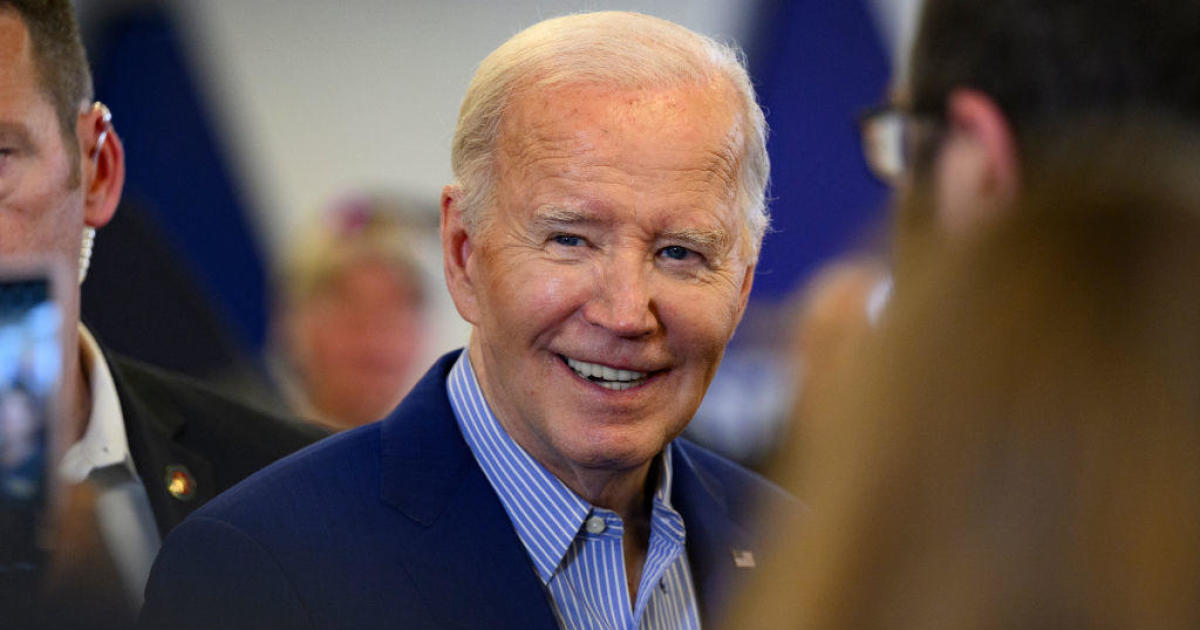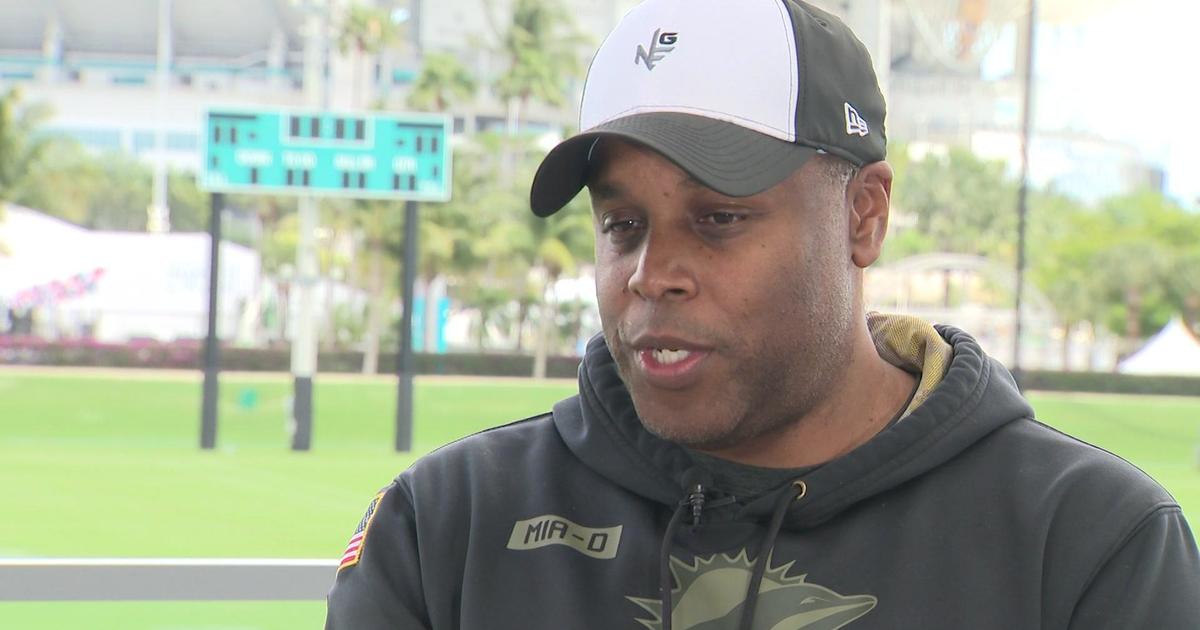I-Team: Stimulus Bridge Repairs Coming Up Short
Two years ago Saturday, the I-35W bridge collapsed over the Mississippi River near Minneapolis killing 13 people and injuring 145. President Barack Obama and Congress pledged to use part of his $787 billion stimulus package to fix those troubled bridges.
But an I-Team investigation combined with the Associated Press, finds many of those bridges still won't be fixed.
I-Team investigator Stephen Stock has spent two years investigating our troubled and crumbling bridges.
This spring the CBS4 I-Team uncovered 39 different bridges in South Florida ranked by engineers as "structurally deficient."
Yet, the I-Team also found that only a half dozen of those bridges qualify and will receive federal stimulus aid.
The bridges are located from Golden Beach to Miami Beach, Brickell Key to Geiger Key. State records show these half dozen bridges will now be repaired or even rebuilt using $3,201,663.62 in federal stimulus dollars.
"They will be a function, Stephen, of if the project is 'shovel ready'," said Kevin Thibault, Assistant Secretary for Engineering and Operations at Florida's Department of Transportation. "If they haven't done a lot of work on it yet and if they need to purchase property and so on it might not qualify. Because of the funding (rules) it might not be something they (municipalities) could do right now under (federal stimulus guidelines.)"
And some of these municipalities are finding their projects are not ready. That's why Assistant Secretary Thibault said many Florida municipalities don't qualify for the pot of $400 million stimulus dollars meant for local bridge and road repair.
The projects simply are not "shovel ready" and don't qualify and won't get federal money.
Nationwide the Associated Press discovered, for whatever reason, thousands of bridges where much the same thing has occurred when it comes to stimulus dollars.
Of the 2,476 bridges throughout the nation that are scheduled to receive stimulus money so far, nearly half have passed inspections with high marks, according to federal data.
The AP found those 1,123 sound bridges received such high inspection ratings that they normally would not qualify for federal bridge money, yet they will share in more than $1.2 billion in stimulus money.
Bridges in poor repair such as a dilapidated one in West Virginia don't qualify and won't get any federal Stimulus dollars. Whereas a relatively new bridge in good shape located in Washington, D.C. will get federal stimulus dollars for upkeep.
In fact, the I-Team discovered that in Florida, 73 percent of transportation stimulus dollars went to new paving, road and bridge projects. And only 22 percent went to maintaining and fixing old and crumbling bridges and roads.
That percentage is almost the exact opposite of how federal officials said stimulus dollars would be used.
In fact, a study by Smart Growth America found similar numbers for Florida. The Smart Growth America survey also showed that the average percentage break-out nationwide was 31% for new construction and 63% for maintenance and repair.
Smart Growth America faulted Florida officials for earmarking most of its $1.35 Billion allocation for new or wider roads, rather than repairing deteriorating roads and bridges.
Because of that, Smart Growth America ranked Florida 48th in the country behind only Arkansas, Kansas and Kentucky in how federal transportation stimulus dollars are being used.
Florida DOT officials admit the percentages are flip-flopped from most other states. But DOT's Assistant Secretary says that is because Florida already maintains its aging infrastructure better than other states. And he points out the $8.4 billion in stimulus dollars have been set aside for mass transit systems.
"22 percent is a proper percentage because the state already maintains its roadways and bridges," said DOT's Thibault. "The (Florida) legislature passed a law years ago that required that we budget to maintain our infrastructure. So compared to other states we're in much better shape."
"Less than 1 percent of all our bridges are structurally deficient," Thibault said. "Because we've already done that (spent money on repair.) The remaining stuff that needed to be done are those improvements in the urban areas."
Earlier this year, when he introduced the stimulus package, President Obama pointed to crumbling infrastructure including bridges as potential prime recipients for this type of money.
But critics say not enough of the stimulus money has been used that way. And they say that a historic chance to chip away at the $65 billion backlog of deficient structures has crumbled as well.



